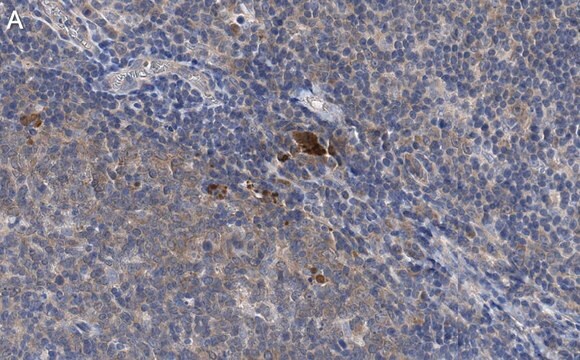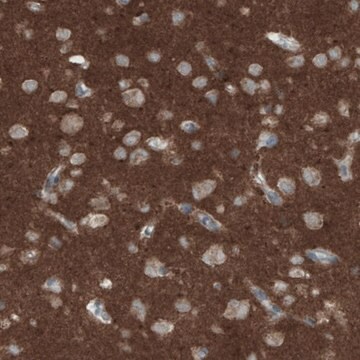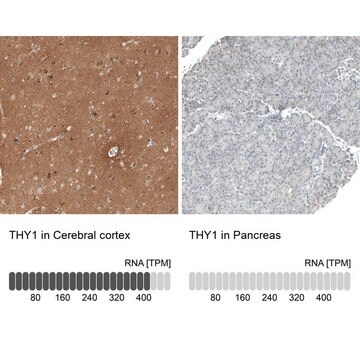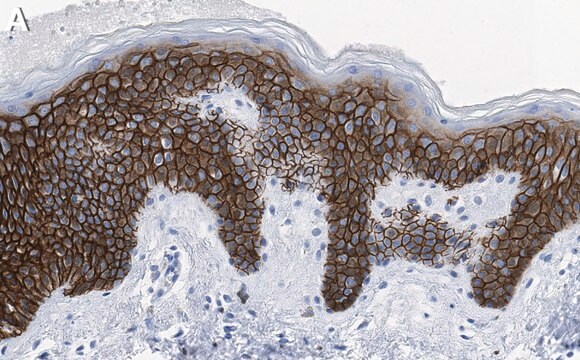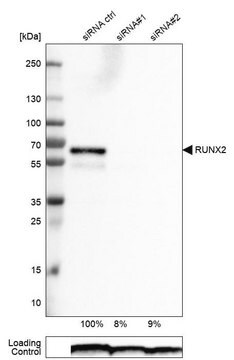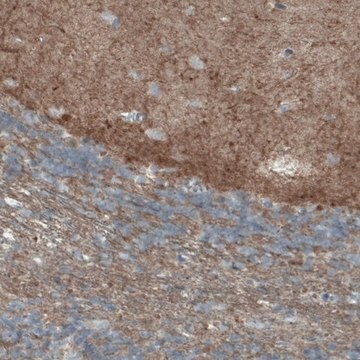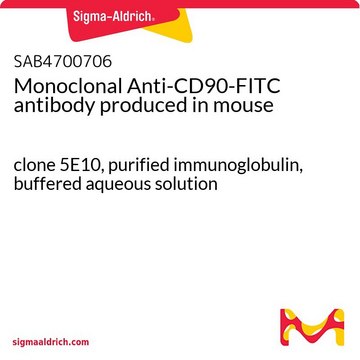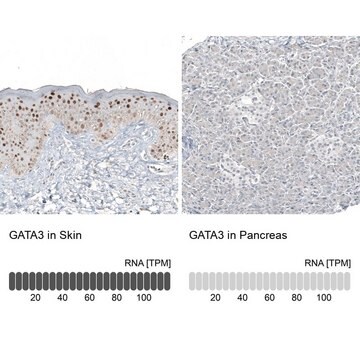SAB4200497
Anti-THY1 antibody, Mouse monoclonal
clone TH350, purified from hybridoma cell culture
Synonym(s):
Anti-CD90, Anti-CDw90, Anti-FLJ33325, Anti-Thy-1 T-cell antigen, Anti-Thy-1 antigen, Anti-Thy-1 cell surface antigen, Anti-thy-1 membrane glycoprotein, Monoclonal Anti-THY1 antibody produced in mouse
About This Item
Recommended Products
biological source
mouse
conjugate
unconjugated
antibody form
purified from hybridoma cell culture
antibody product type
primary antibodies
clone
TH350, monoclonal
form
buffered aqueous solution
mol wt
antigen ~27 kDa
species reactivity
mouse, human, rat
concentration
~1.0 mg/mL
technique(s)
ELISA: suitable
flow cytometry: 20-40 μg/test using A549 cells.
immunohistochemistry: suitable
western blot: 2.0-4.0 μg/mL using NT2 total cell extracts.
UniProt accession no.
shipped in
dry ice
storage temp.
−20°C
target post-translational modification
unmodified
Gene Information
human ... THY1(7070)
General description
Thy-1 cell surface antigen (THY1) is a glycoprotein that is expressed on the membranes of adult cells, mesenchymal stromal cells and cancer cells. It has a molecular weight of about 25-37kDa. The gene encoding THY1 is localized on human chromosome 11q23.3.
Specificity
Immunogen
Application
- immunoblotting
- flow cytometry
- immunofluorescence
Biochem/physiol Actions
Physical form
Storage and Stability
Disclaimer
Not finding the right product?
Try our Product Selector Tool.
Storage Class Code
10 - Combustible liquids
WGK
WGK 2
Flash Point(F)
Not applicable
Flash Point(C)
Not applicable
Certificates of Analysis (COA)
Search for Certificates of Analysis (COA) by entering the products Lot/Batch Number. Lot and Batch Numbers can be found on a product’s label following the words ‘Lot’ or ‘Batch’.
Already Own This Product?
Find documentation for the products that you have recently purchased in the Document Library.
Our team of scientists has experience in all areas of research including Life Science, Material Science, Chemical Synthesis, Chromatography, Analytical and many others.
Contact Technical Service